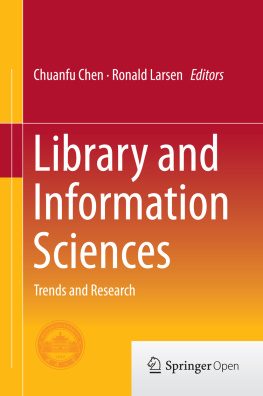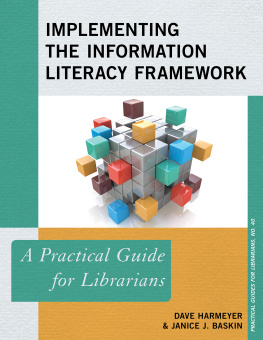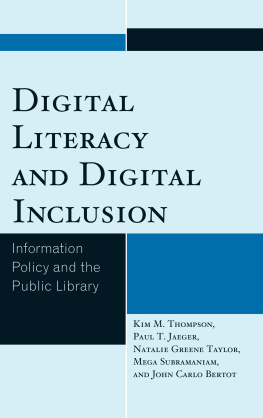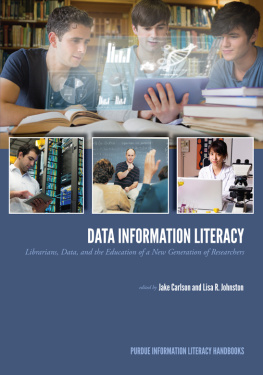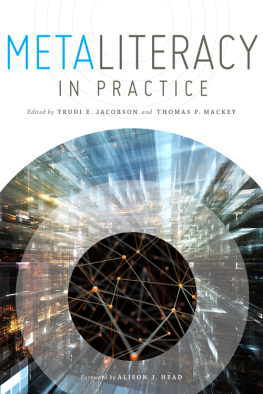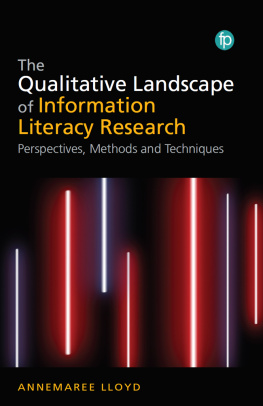Career and Professional Opportunities and Challenges for Librarians and Other Information Professionals Specializing in Information Literacy and Lifelong Learning
Remarks delivered at the UNESCO Training-the-Trainers in Information Literacy Workshop, Wuhan University, Wuhan China, October 21, 2008. It has been updated, with a postscript, for republication here.
You will be hearing a great deal about information literacy and lifelong learning at this workshop today and tomorrow. I have the honour to serve as UNESCOs facilitator for a series of 11 workshops being held throughout this year in all of the regions of the world. Six are now completed, and I would like to share with you today some of the career and professional opportunities, as well as challenges, that have been highlighted and discussed by both the expert presenters and participants at those first six workshops.
First the career and professional opportunities.
I hope when you come away from these three workshop days here at Wuhan University you will be convinced that you have selected a bright and promising future for yourselves in a field that has emerged as a critical twenty first Century skill requirement. The opportunities, both tangible and intangible, both quantifiable and non-quantifiable, are numerous, growing by leaps and bounds every day, and are already, and will continue to be realized by all sectors and by all professions. For example, with a more highly information literate workforce, private sector companies can expect that their workers will work smarter at whatever they do, and therefore produce at a higher ratewhatever the products and services involvedthan ever before. But I want to concentrate on librarians and information professionals because most of you are in that career area already, and I therefore want to try to address your needs and expectations, and try to deal with some of your fears and misgivingsreal or imagined.
To begin with, you are going to be in great demand for your knowledge and skills because you can expect that your superiors, colleagues, peers and subordinates, not to mention your family and friends, will have been reading about information literacy and asking many questionswhat is it, why is it important to me, how can I learn about it, and how can I practice it so as to improve my life, do my job better, and help my family resolve their problems? They will begin to look to you for the answers to those questionsperhaps from the moment you arrive back home and go back to your jobs on the first day. They will need training, which is why this workshop is designed to help train the trainers. So the first opportunity Im addressing is that you are in a new and still-emerging profession, the members of which will be expected to have acquired, both in formal schooling, in special workshop opportunities such as this one, as well as in practice, on-the-job, information literacy knowledge and skills. Whether you respond to this demand for your expertise and talents is, of course, entirely up to you. Some of you may be timid, and believe that you have not learned enough to call yourselves information literacy experts. That is understandable. Sometimes titles are not all that important. But, hopefully, many, if not most of you, will, slowly but surely, rise to this demand for your talents, whatever your current job title, and, however modestly, and however carefully you begin to respond to that demand, you will, eventually, be looked up to in your organization as one of the, if not THE information literacy expert! Many professionals are in stable or even declining fields and careers. But yours is a field that is ascendantrising fastand the demand will not lessen for years to come. I personally happen to believe it is rising exponentially!
Secondly, as the benefits of a more information literate faculty, student body, office worker, laboratory worker, factory worker, and managerial level becomes more visible, quantifiable, transferable and sustainable, inevitably your job opportunities will proliferate and salary levels and other kinds of benefits can be expected to increase commensurately. Do not sell yourself cheaply! Perhaps you may need to transfer, moving to another unit, or even an entirely different organization, to take advantage of new opportunities that are arising. Do not be bashful or hesitant to consider such offers and opportunities. In short, the price tag you command should increase proportionately to correspond with the level of expertise you acquire as you learn more and more about information theory concepts and practices. Like all fields, you start as a beginner, then advance to an intermediate level, and then, sooner or later, go on to an advanced level. Be sure to keep your resume and C.V. up to date to reflect your information literacy expertise and learning. For example, include workshops of this kind in your C.V. so that when a more lucrative and challenging job offer becomes available, you will have a job portfolio that reflects accurately your training as well as on-the-job experience.
Thirdly, consultancy opportunities. Whether you are currently working for a library in some other kind of information job at a university, a government agency, a private company, an NGO, or somewhere in the Civil Society, and whether in a regular line or staff position, with a regular career progression ladder, inevitably new consultancy opportunities will appear for you. Perhaps you are already largely satisfied with the career ladder in front of you. That is, the salary levels at each step on the ladder, the intellectual satisfaction, the working environment, your peers, and so on. But I can predict that, as your information literacy expertise increases, and becomes more widely known in your community, sooner or later you will be called upon to provide advice and assistance to organizations beyond your own. Consistent with your current legal and ethical job demands and employment rules, you may well be able to benefit from such offers, and, in many cases, monetarily benefit. Perhaps if such requests come from close friends and colleagues you may decide to provide your expert advice and assistance gratisfree of chargerecovering just expenses. But do keep in mind that experts normally charge a fee for their knowledge and expertisethey do not often give it away free!
Finally, even if you choose to remain in your present job, without risking any significant requests to change your job descriptions and position duties, you still will have considerable professional opportunities to share your information literacy expertise with your colleagues, both inside and outside of your present organizations. What I mean here is that as it gradually becomes known that not only are you a librarian, or an information professional of some kind (whatever your exact job title may be), inevitably your colleagues, and even strangers, will begin to approach you and ask for your advice and assistance. In short you will become recognized as a person who possesses knowledge and skills that are extremely timely, and very valuable. You must decide, then, how to handle that kind of opportunity. Obviously there is also some risk that unless you obtain at least implicit permission from your superiors to spend at least some time offering information literacy advice to those seeking it from you, your superiors may come to believe you are extending yourselves beyond your assigned duties and responsibilities. So you must be careful to address this risk. But, having said that, I believe that the benefits and values of deliberately expanding your skill portfolio to beyond your classic academic training, to embrace the new skill sets possessed by an information literacy expert, outweigh the costs and burdens. But each of you will have to make that decision for yourself.

